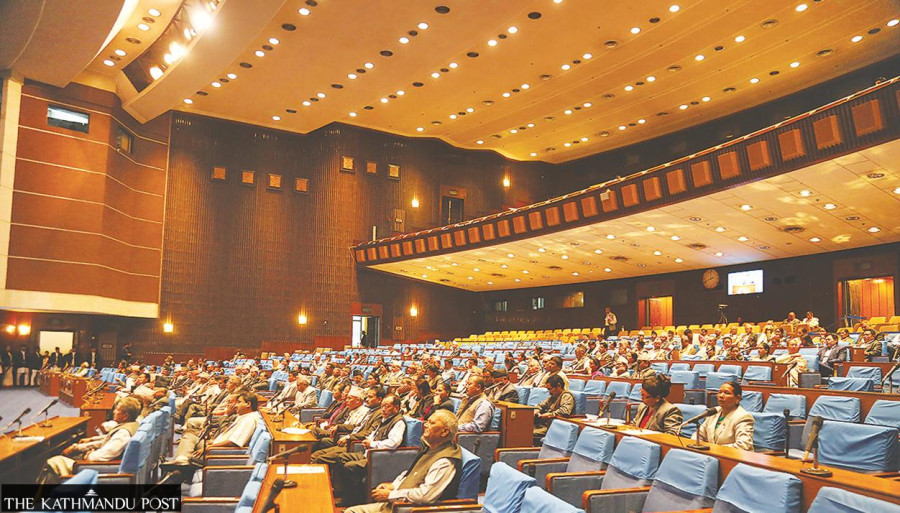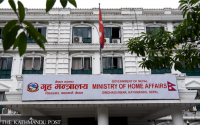National
Bill proposes continuing current lower house’s term until March 4
Experts decry plan as unparliamentary. Government has drafted a bill to amend relevant law.
Binod Ghimire
Amid confusion over the term of the House of Representatives, the government has prepared a bill with a provision to calculate its life.
Proposed amendments to the Election of the House of Representatives Act, through some Nepal Act amendment bill endorsed by the Cabinet on Thursday, say the tenure of the lower house will be deemed to have begun from the day of its first meeting.
The current House held its first meeting after the 2017 elections, which were held in two phases on November 26 and December 7, on March 5, 2018. By that extension, as per the constitution, it completes its five years on March 4, 2023, as Article 85 says: “Unless dissolved earlier pursuant to this constitution, the term of the House of Representatives shall be five years.”
The amendment bill prepared by the Ministry of Law, Justice and Parliamentary Affairs will be registered in Parliament shortly, according to officials at the ministry.
“The tenure of the House of Representatives will be counted from the day of its first meeting,” said Minister for Energy, Water Resources and Irrigation Pampha Bhusal, citing the provision in the amendment.
Officials at the Law Ministry say the bill was prepared to address the lack of legal clarity over the tenure of the House of Representatives.
Though the constitution says the term of the House would be five years, it doesn't say which date to take as the beginning of its term. According to Bhusal, the bill also says the existing lower house will continue until the first meeting of the House to be elected from the November 20 elections.
“The bill also says the tenure of the previous lower house will be deemed to have automatically ended from the day the newly elected House holds its first meeting,” said Bhusal.
If the bill gets endorsed from the federal parliament, the incumbent lower house can function until the House of Representatives elected from the November 20 election hold its first meeting. The same provision will be applicable for the provincial assemblies.
In the lack of the legal clarity, the Election Commission had decided to take December 8 (2017), when at least first winner of both federal and provincial elections under the first-past-the-post category was announced, as the date of commencement of tenure. “If the bill gets endorsed from the ongoing session, the present lower house will continue until the first meeting of the House to be elected from the upcoming elections,” Shashi Shrestha, Minister for Land Management and Cooperatives.
Constitutional and parliamentary experts, however, see the provision impractical and against parliamentary practice. Senior advocate Purna Man Shakya, who also is a professor at Nepal Law Campus, said the elections can be held only when the positions of lawmakers are vacant. “How can the elections be held for parliamentary positions that are not vacant,” he said. “The incumbent house must come to an end for the new elections to be held.”
The Election Commission in its election code of conduct has said the position of the lawmakers will continue until their nominations. The closed lists of candidates for proportional representation will be submitted on September 17 and 18. The nomination of candidates for the House of Representatives and the provincial assemblies will likely be made on November 8 or 9.
Article 91 (6) (B) of the constitution also says the Speaker and deputy Speaker shall continue in office until the date of the filing of nominations for election to the House of Representatives. The House will be headless the day the Speaker and deputy Speaker file their nominations. “Except a few, most lawmakers will be candidates either under the direct or the proportional systems. The House cannot function in the absence of a majority of lawmakers and the Speaker and the deputy Speaker,” Som Bahadur Thapa, a former secretary at the Parliament Secretariat, told the Post. “What is the meaning of continuing the House when it cannot perform its job.”




 9.93°C Kathmandu
9.93°C Kathmandu














